Human Nature Quotes
Most popular human nature quotes
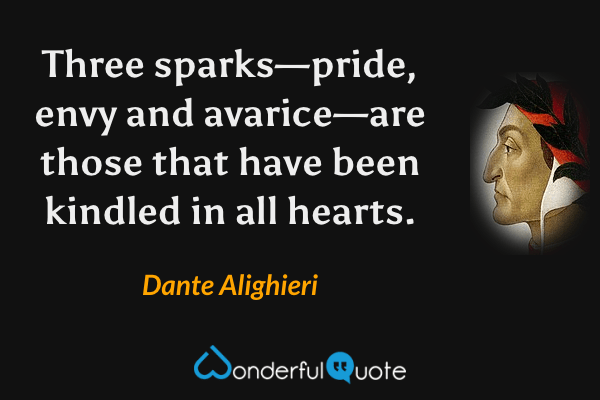
Three sparks—pride, envy and avarice—are those that have been kindled in all hearts.
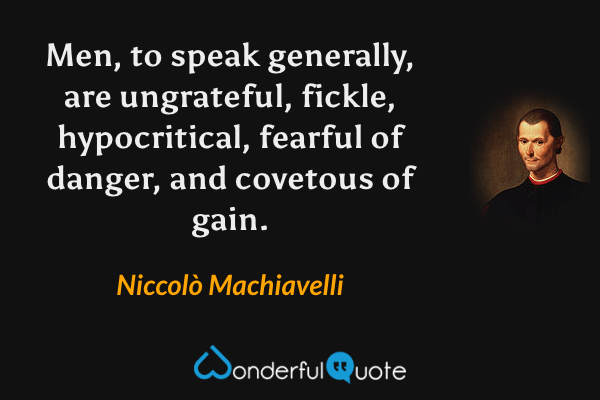
Men, to speak generally, are ungrateful, fickle, hypocritical, fearful of danger, and covetous of gain.
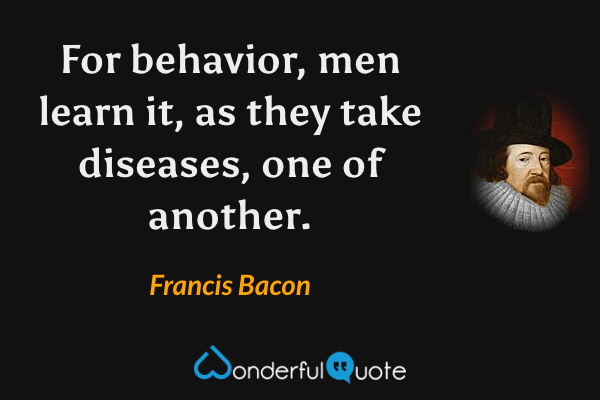
For behavior, men learn it, as they take diseases, one of another.
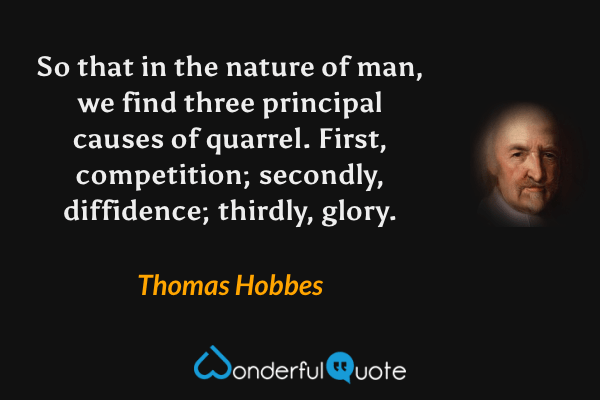
So that in the nature of man, we find three principal causes of quarrel. First, competition; secondly, diffidence; thirdly, glory.
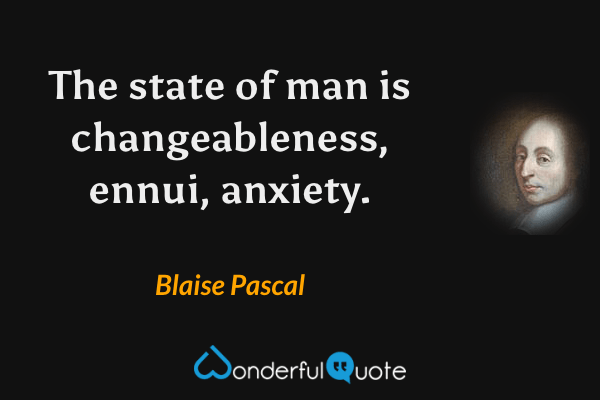
The state of man is changeableness, ennui, anxiety.
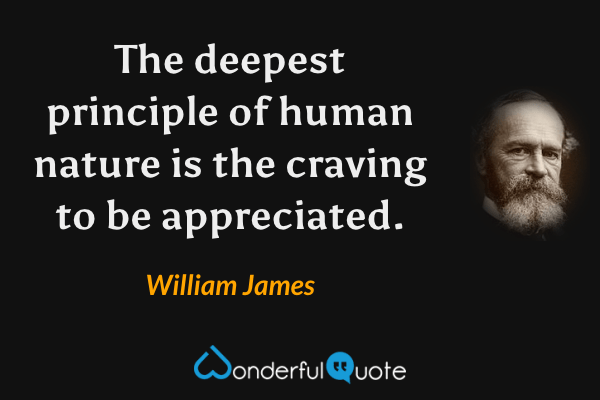
The deepest principle of human nature is the craving to be appreciated.
Every man has three characters: that which he exhibits, that which he has, and that which he thinks he has.
When a man thinks he is reading the character of another, he is often unconsciously betraying his own.
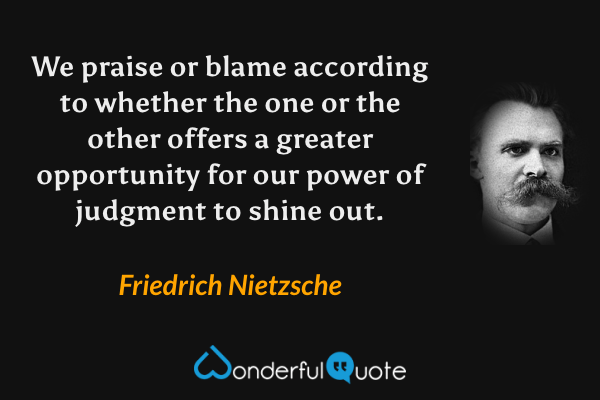
We praise or blame according to whether the one or the other offers a greater opportunity for our power of judgment to shine out.

If you have been put in your place long enough, you begin to act like the place.

A man never tells you anything until you contradict him.

We never forgive those who make us blush.
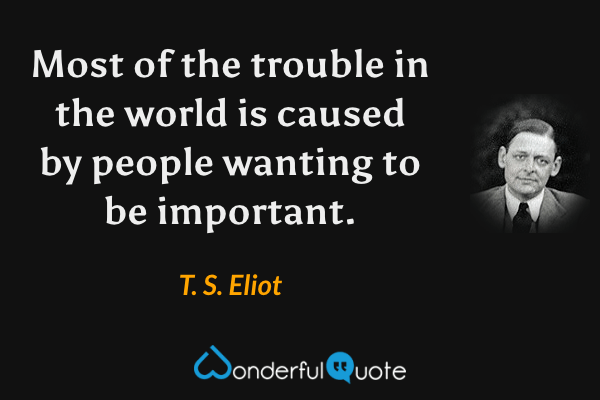
Most of the trouble in the world is caused by people wanting to be important.
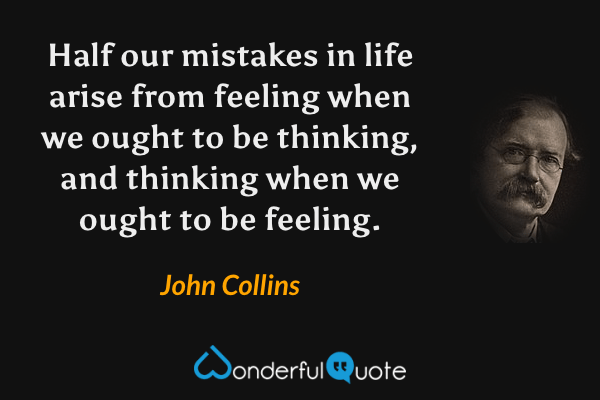
Half our mistakes in life arise from feeling when we ought to be thinking, and thinking when we ought to be feeling.

Man is always as wicked as his needs require.
Our faults irritate us most when we see them in others.
Human beings are perhaps never more frightening than when they are convinced beyond a doubt that they are right.
Gain does not give as much pleasure as loss gives grief.
When the stomach is full, it is easy to talk of fasting.
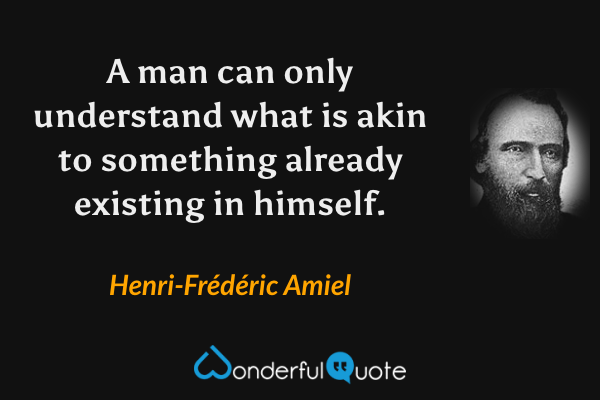
A man can only understand what is akin to something already existing in himself.
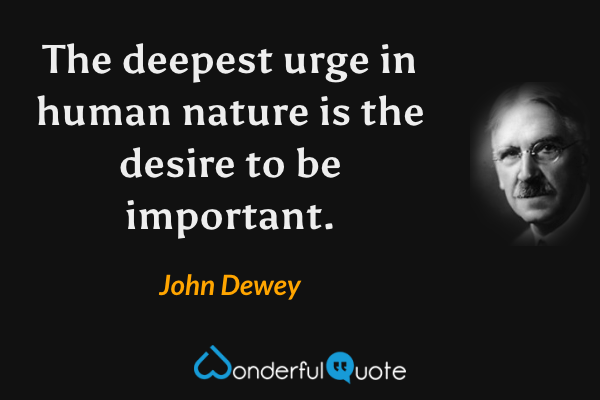
The deepest urge in human nature is the desire to be important.
Man is made by his beliefs. As he believes, so he is.
One is vain by nature, modest by necessity.
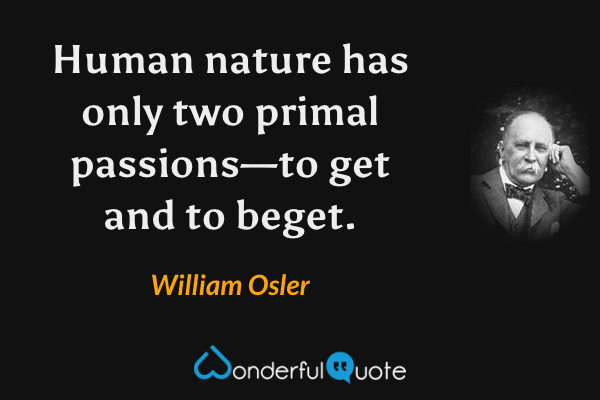
Human nature has only two primal passions—to get and to beget.
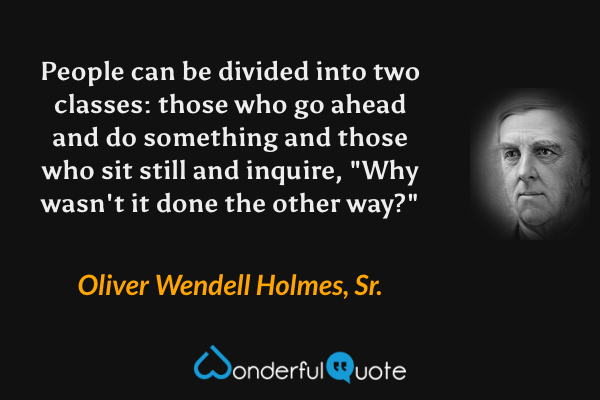
People can be divided into two classes: those who go ahead and do something and those who sit still and inquire, "Why wasn't it done the other way?"
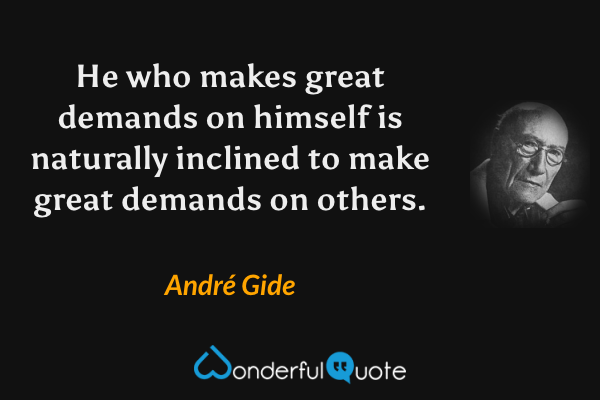
He who makes great demands on himself is naturally inclined to make great demands on others.
Those who love to be feared, fear to be loved. Some fear them, but they fear everyone.
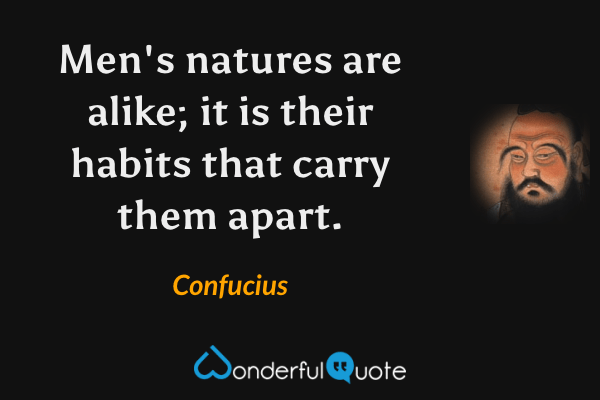
Men's natures are alike; it is their habits that carry them apart.
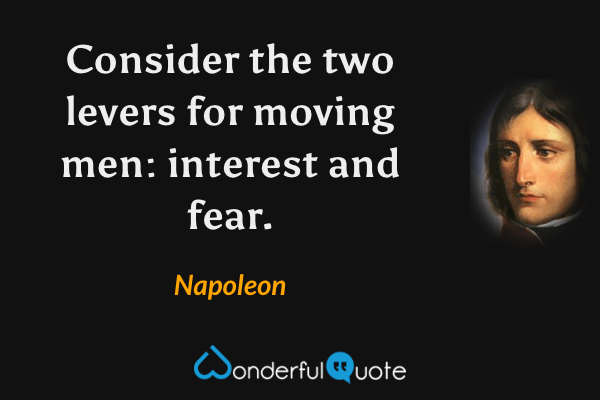
Consider the two levers for moving men: interest and fear.

There are two insults which no human will endure: the assertion that he hasn't a sense of humor, and the doubly impertinent assertion that he has never known trouble.
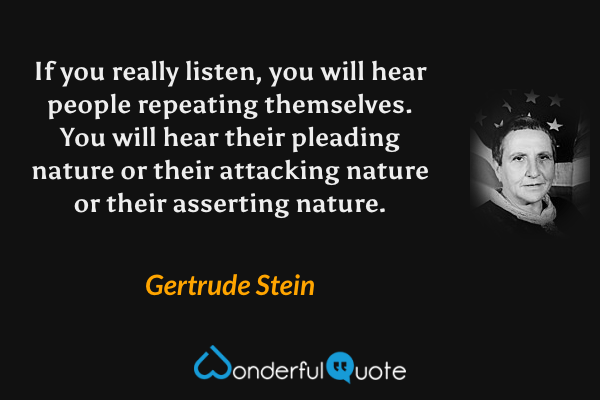
If you really listen, you will hear people repeating themselves. You will hear their pleading nature or their attacking nature or their asserting nature.
In great matters people show themselves as they wish to be seen; in small matters, as they are.
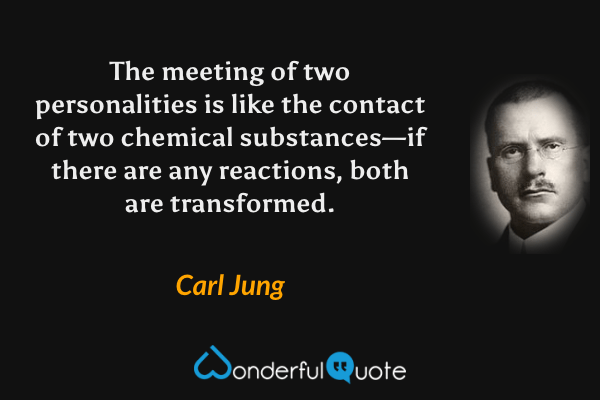
The meeting of two personalities is like the contact of two chemical substances—if there are any reactions, both are transformed.
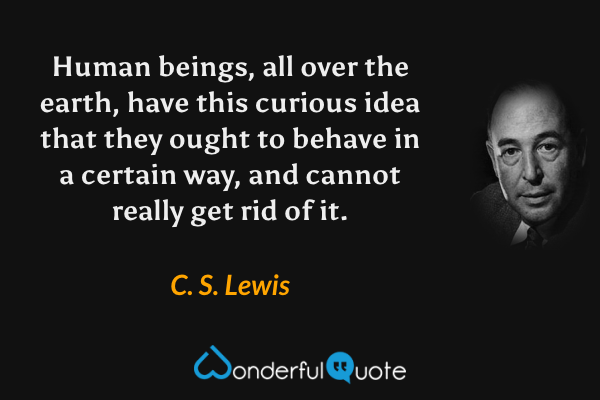
Human beings, all over the earth, have this curious idea that they ought to behave in a certain way, and cannot really get rid of it.
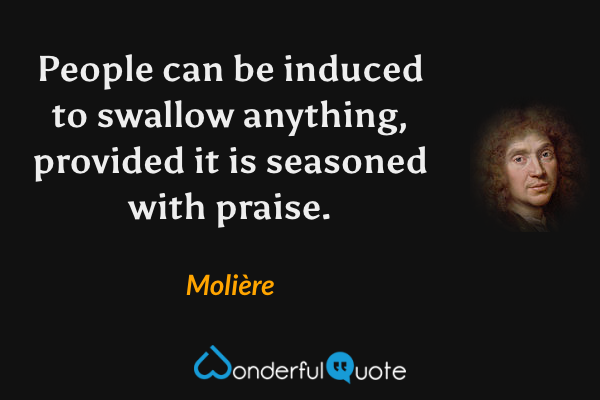
People can be induced to swallow anything, provided it is seasoned with praise.
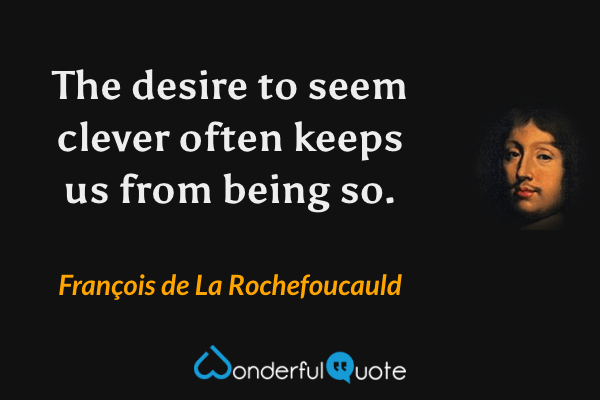
The desire to seem clever often keeps us from being so.
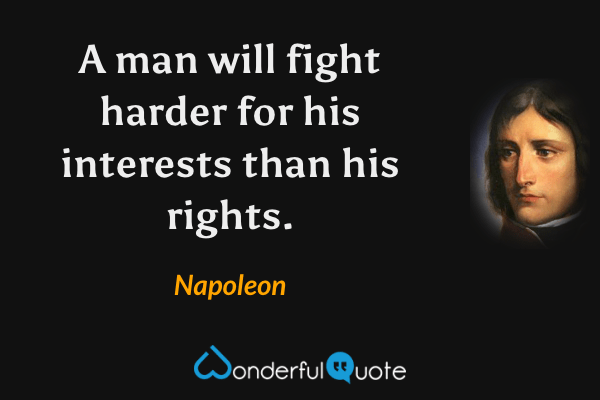
A man will fight harder for his interests than his rights.
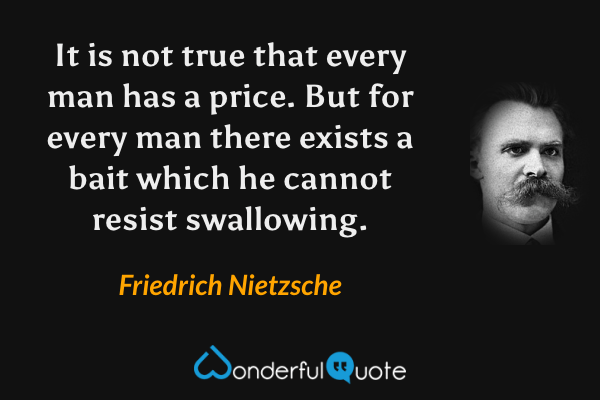
It is not true that every man has a price. But for every man there exists a bait which he cannot resist swallowing.
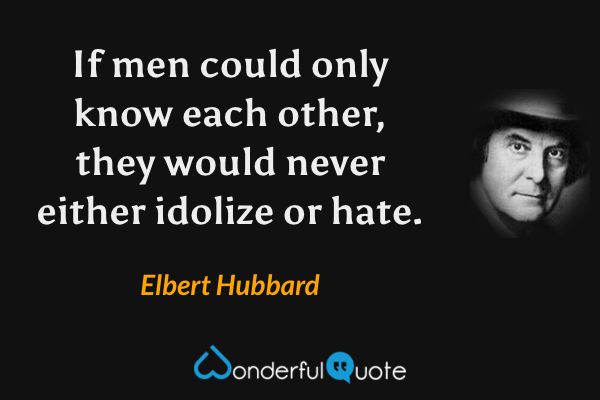
If men could only know each other, they would never either idolize or hate.

You are, after all, what you think. Your emotions are the slaves to your thoughts, and you are the slave to your emotions.
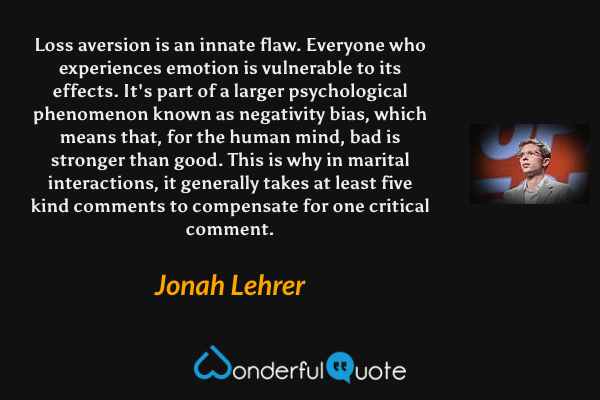
Loss aversion is an innate flaw. Everyone who experiences emotion is vulnerable to its effects. It's part of a larger psychological phenomenon known as negativity bias, which means that, for the human mind, bad is stronger than good. This is why in marital interactions, it generally takes at least five kind comments to compensate for one critical comment.
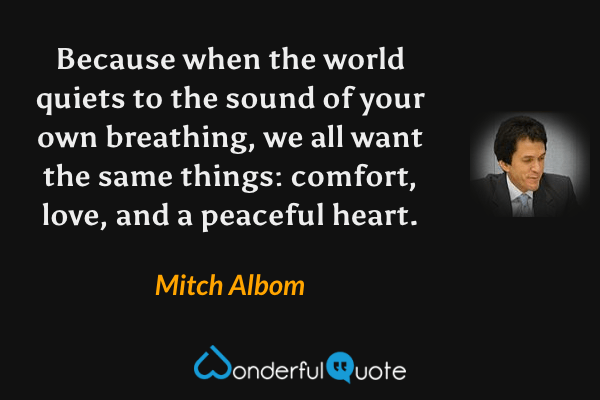
Because when the world quiets to the sound of your own breathing, we all want the same things: comfort, love, and a peaceful heart.
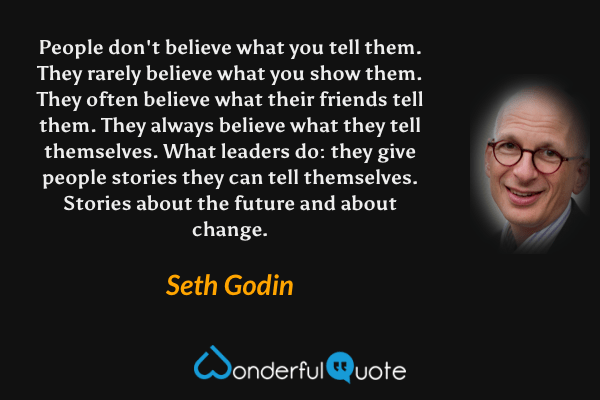
People don't believe what you tell them. They rarely believe what you show them. They often believe what their friends tell them. They always believe what they tell themselves. What leaders do: they give people stories they can tell themselves. Stories about the future and about change.
![SDT [Self-Determination Theory], by contrast, begins with a notion of universal human needs. It argues that we have three innate psychological needs—competence, autonomy, and relatedness. - Daniel H. Pink quote.](/img/q/16/1416A-sdt-self-determination-theory-by-contrast-begins-with-notion-universal-daniel-h-pink.png)
SDT [Self-Determination Theory], by contrast, begins with a notion of universal human needs. It argues that we have three innate psychological needs—competence, autonomy, and relatedness.
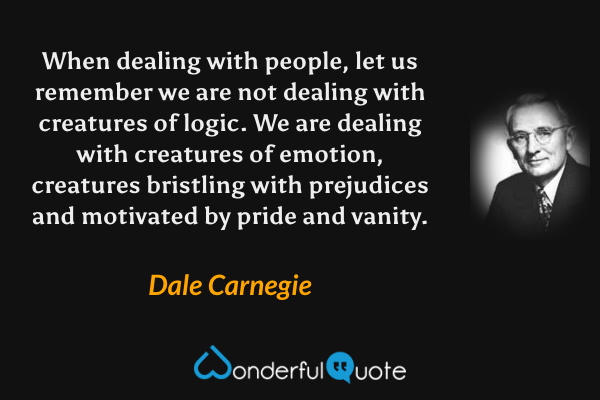
When dealing with people, let us remember we are not dealing with creatures of logic. We are dealing with creatures of emotion, creatures bristling with prejudices and motivated by pride and vanity.
Thoughts are like lenses through which we look at our world. We all have a tendency to cling to our particular lens and allow it to dictate how we interpret our experiences, even to the point of dictating who we think we are.
Not only must you deal with the immediate pain of your thoughts, feelings, and physical ailments, you also must deal with the pain caused by the fact that your pain prevents you from living the kind of life you want to live.
Generally, the more you live your life trying to ward off the pain of presence, the more pain you get, particularly in the form of the pain of absence.
Often, we attach ourselves to our pain, and we start to judge our lives based on how we feel and not on what we do.
People don't really change, they just become better actors.

You must come to see that it is possible for a man to be self-centered in his self-denial and self-righteous in his self-sacrifice. He may be generous in order to feed his ego and pious in order to feed his pride. Man has the tragic capacity to relegate a heightening virtue to a tragic vice. Without love benevolence becomes egotism, and martyrdom becomes spiritual pride.

We are shaped and fashioned by what we love.

We want people to feel with us more than to act for us.

There is pleasure in hardship heard about.
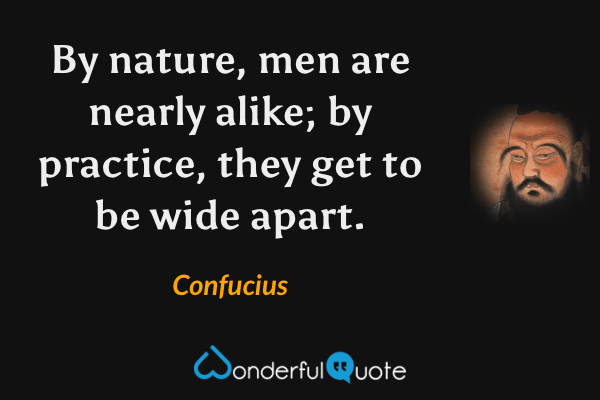
By nature, men are nearly alike; by practice, they get to be wide apart.

Ten thousand men possess ten thousand hopes.
What the eye doesn't see, the heart doesn't grieve over.
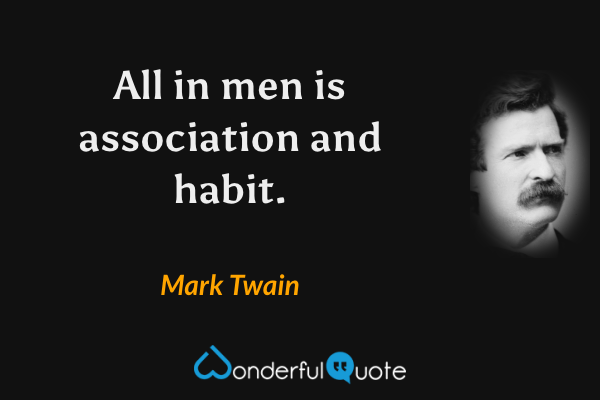
All in men is association and habit.

All worship money.
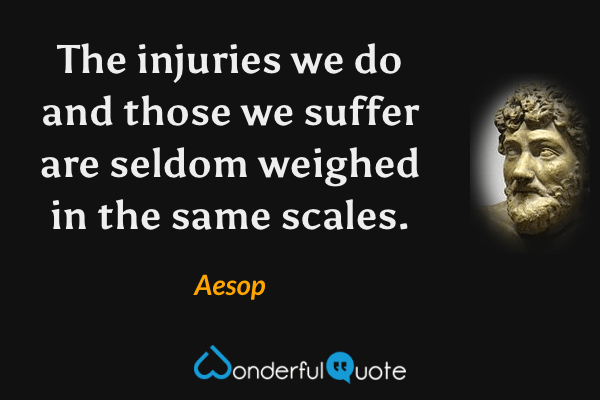
The injuries we do and those we suffer are seldom weighed in the same scales.
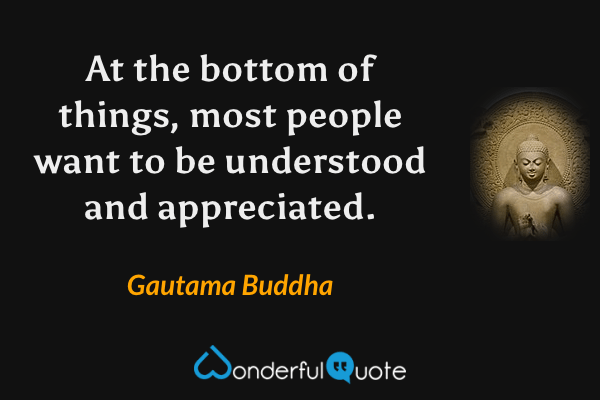
At the bottom of things, most people want to be understood and appreciated.
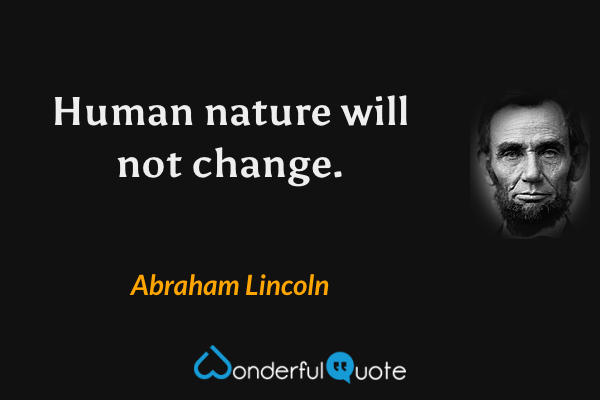
Human nature will not change.

Here all mankind is equal; rich and poor alike, they love their children.
An optimist stays up until midnight to see the new year in. A pessimist stays up to make sure the old year leaves.

It has been my experience that folks who have no vices have very few virtues.

I like you all because you remind me of myself. Who doesn't like his own image staring back at him?
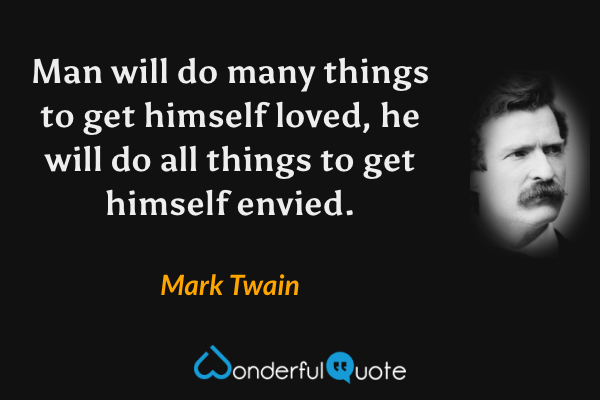
Man will do many things to get himself loved, he will do all things to get himself envied.
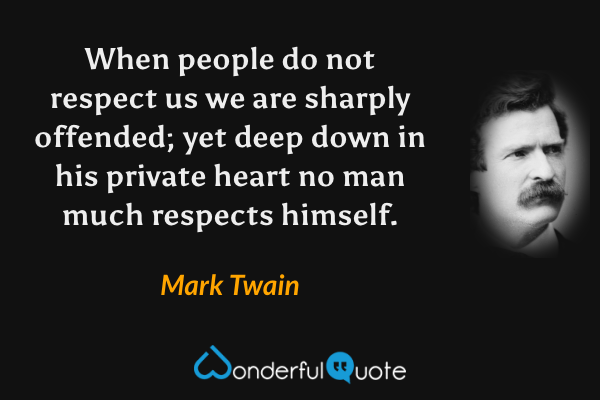
When people do not respect us we are sharply offended; yet deep down in his private heart no man much respects himself.
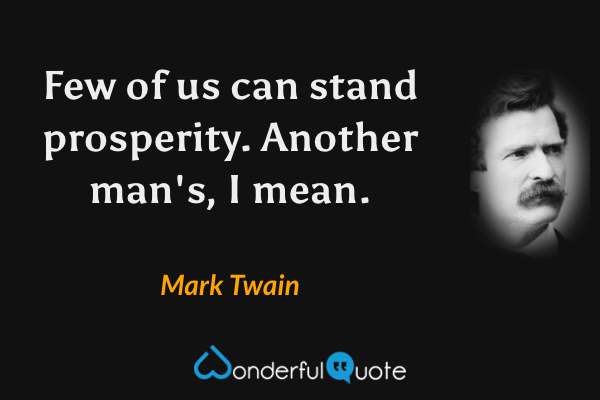
Few of us can stand prosperity. Another man's, I mean.
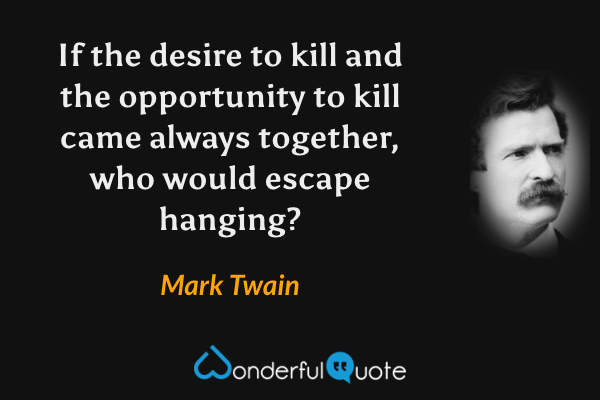
If the desire to kill and the opportunity to kill came always together, who would escape hanging?
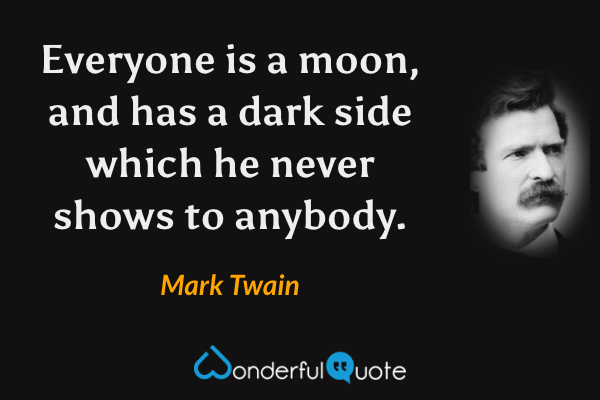
Everyone is a moon, and has a dark side which he never shows to anybody.
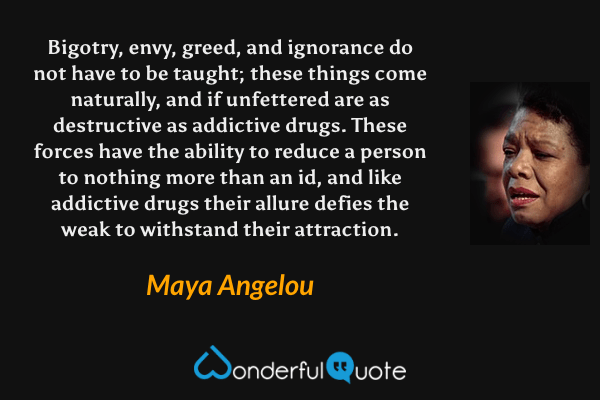
Bigotry, envy, greed, and ignorance do not have to be taught; these things come naturally, and if unfettered are as destructive as addictive drugs. These forces have the ability to reduce a person to nothing more than an id, and like addictive drugs their allure defies the weak to withstand their attraction.

Everyone complains of his memory, and nobody complains of his judgment.
Nothing is so soothing to our self-esteem as to find our bad traits in our forebears. It seems to absolve us.
We may not return the affection of those who like us, but we always respect their good judgment.

The most difficult secret for a man to keep is the opinion he has of himself.
Appearances give us more pleasure than reality, especially when they help to satisfy our egos.
The ingenuities we practice in order to appear admirable to ourselves would suffice to invent the telephone twice over on a rainy summer morning.

There are lots of people who mistake their imagination for their memory.
The moment after Christmas every child thinks of his birthday.
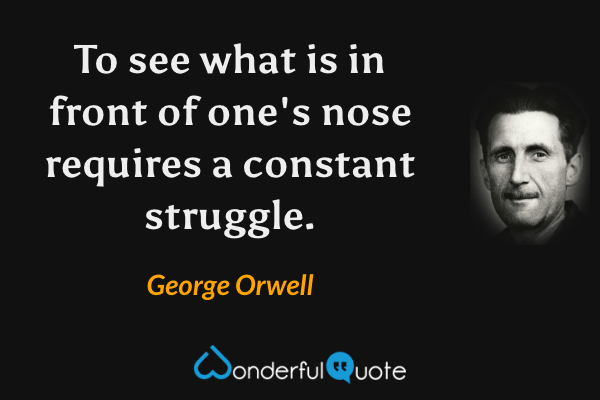
To see what is in front of one's nose requires a constant struggle.
The man who can't dance thinks the band is no good.
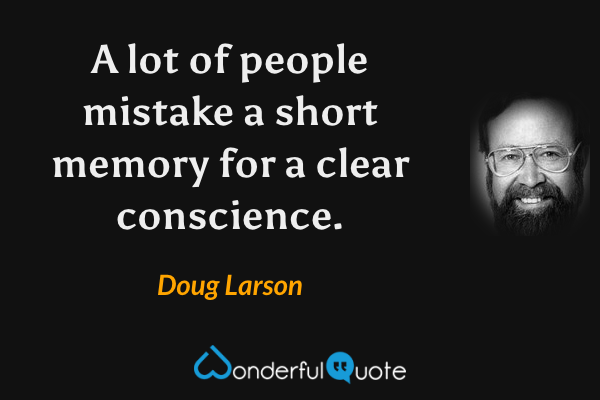
A lot of people mistake a short memory for a clear conscience.

Many people feel "guilty" about things they shouldn't feel guilty about, in order to shut out feelings of guilt about things they should feel guilty about.
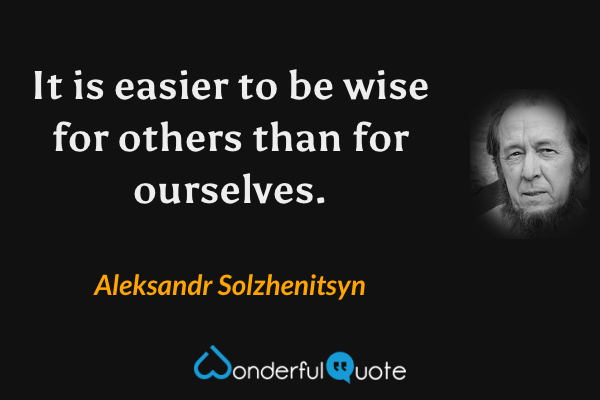
It is easier to be wise for others than for ourselves.
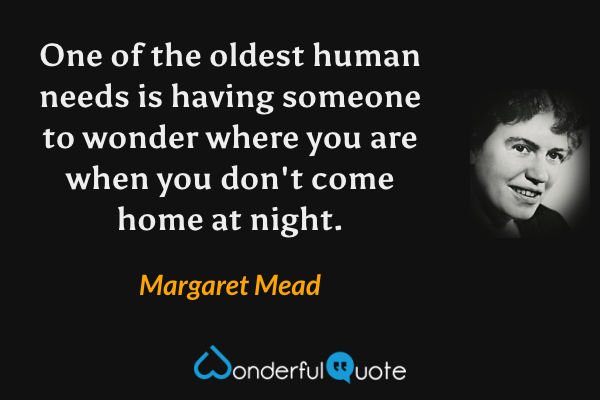
One of the oldest human needs is having someone to wonder where you are when you don't come home at night.
Oh, to be only half as wonderful as my child thought I was when he was small, and only half as stupid as my teenager now thinks I am.

We never know the love of the parent until we become parents ourselves.
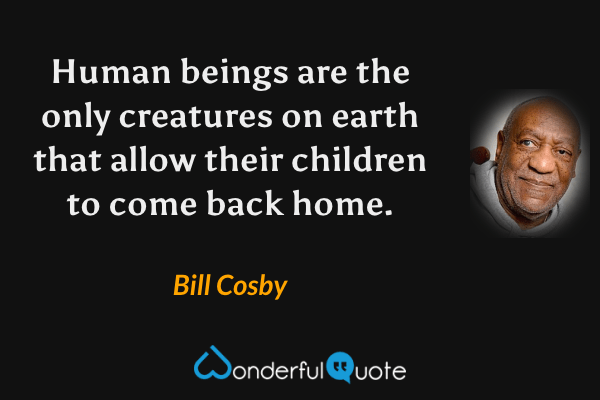
Human beings are the only creatures on earth that allow their children to come back home.
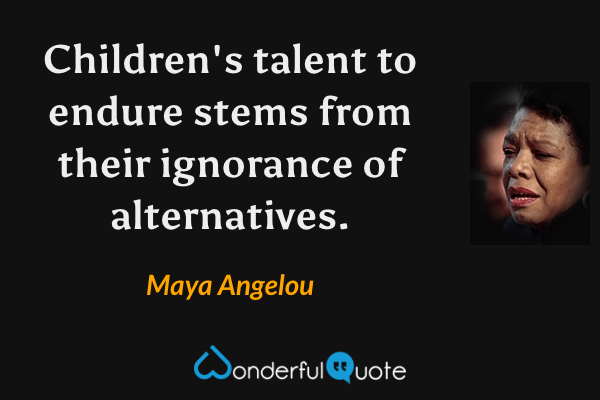
Children's talent to endure stems from their ignorance of alternatives.
You don't really understand human nature unless you know why a child on a merry-go-round will wave at his parents every time around—and why his parents will always wave back.
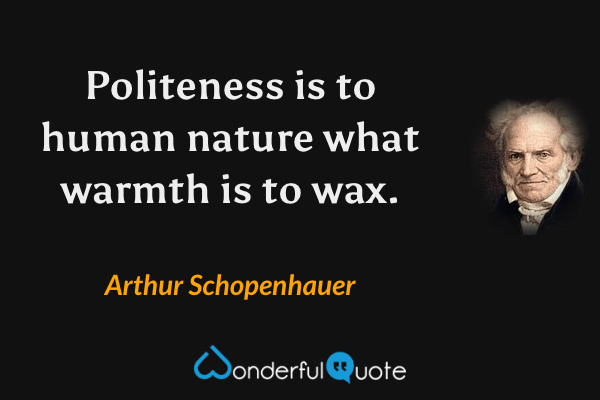
Politeness is to human nature what warmth is to wax.

Another flaw in the human character is that everybody wants to build and nobody wants to do maintenance.

The severest test of character is not so much the ability to keep a secret as it is, when the secret is finally out, to refrain from disclosing that you knew it all along.
The treacherous, unexplored areas of the world are not in continents or the seas; they are in the minds and hearts of men.

There are two insults no human being will endure: that he has no sense of humor, and that he has never known trouble.
You can tell more about a person by what he says about others than you can by what others say about him.
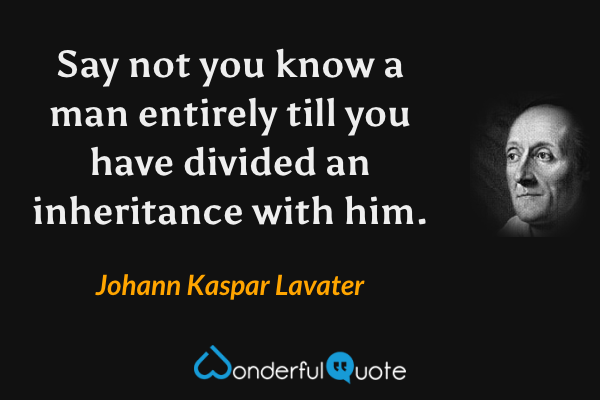
Say not you know a man entirely till you have divided an inheritance with him.

We spend our time searching for security and hate it when we get it.
Man is harder than iron, stronger than stone and more fragile than a rose.
To err is human; to blame it on the other guy is even more human.

Man is the only kind of varmint sets his own trap, baits it, then steps in it.
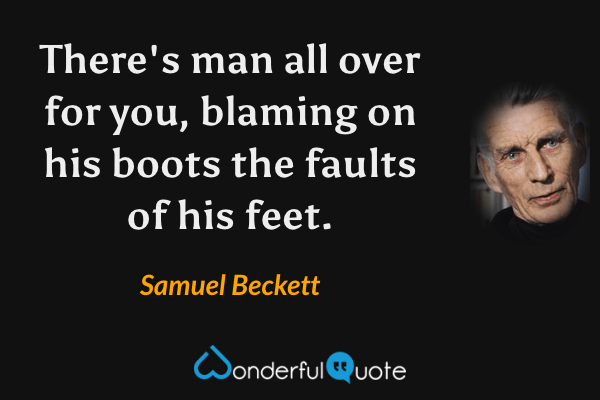
There's man all over for you, blaming on his boots the faults of his feet.

It is much easier to repent of sins that we have committed than to repent of those we intend to commit.
No two men are alike, and both of them are happy for it.
Some people march to a different drummer—and some people polka.
Patience is something you admire in the driver behind you and scorn in the one ahead.
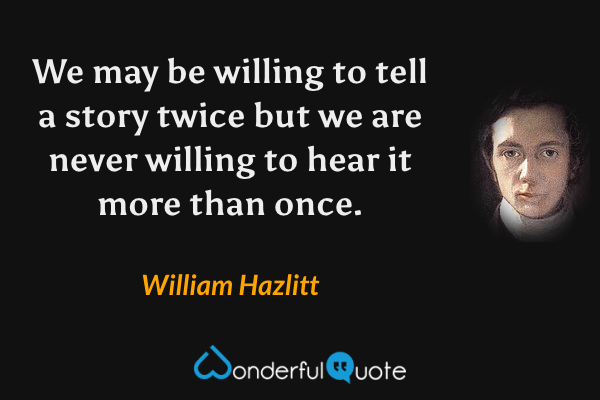
We may be willing to tell a story twice but we are never willing to hear it more than once.
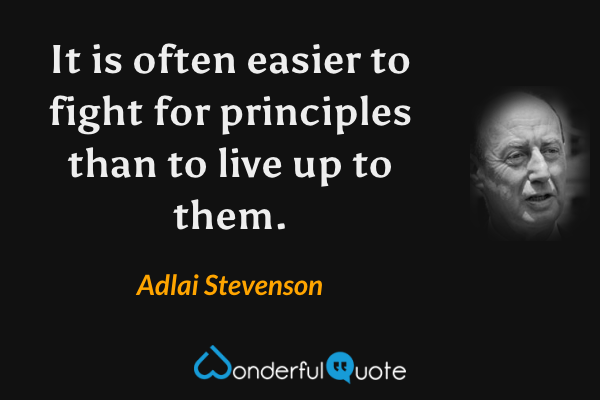
It is often easier to fight for principles than to live up to them.

The everyday kindness of the back roads more than makes up for the acts of greed in the headlines.

On the whole, human beings want to be good, but not too good, and not quite all the time.
People want to know how much you care before they care how much you know.
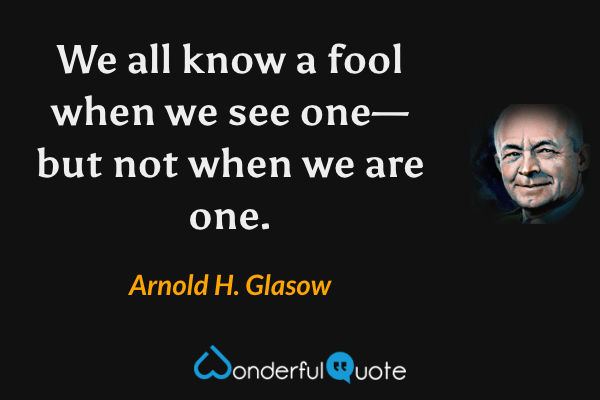
We all know a fool when we see one—but not when we are one.
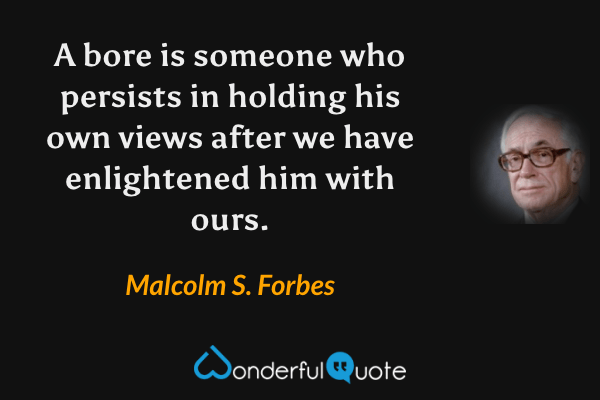
A bore is someone who persists in holding his own views after we have enlightened him with ours.
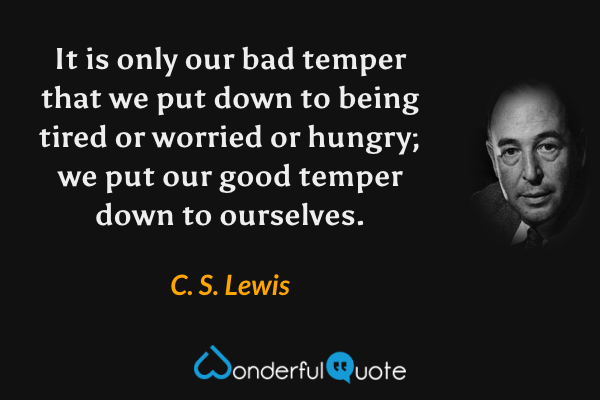
It is only our bad temper that we put down to being tired or worried or hungry; we put our good temper down to ourselves.

Some people will believe anything if it is whispered to them.
We protest against unjust criticism, but we accept unearned applause.
Most of our so-called reasoning consists in finding arguments for going on believing as we already do.

Whoever wants to be a judge of human nature should study people's excuses.
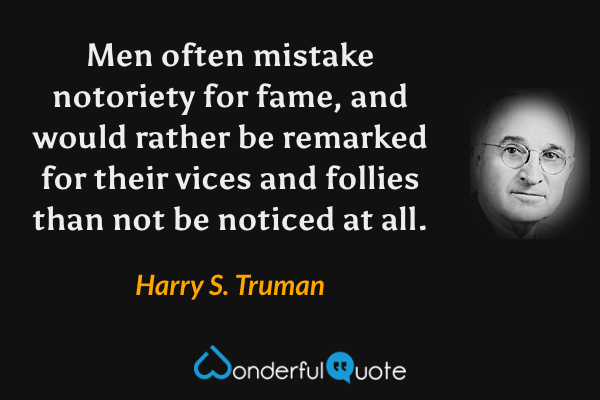
Men often mistake notoriety for fame, and would rather be remarked for their vices and follies than not be noticed at all.
Men may doubt what you say, but they will believe what you do.
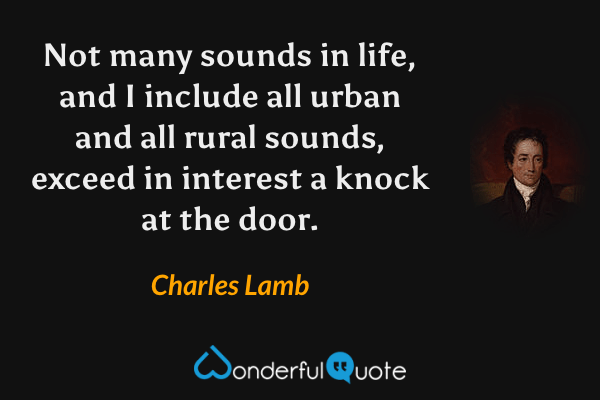
Not many sounds in life, and I include all urban and all rural sounds, exceed in interest a knock at the door.

It is very easy to forgive others their mistakes; it takes more grit and gumption to forgive them for having witnessed your own.

People who have what they want are fond of telling people who haven't what they want that they really don't want it.
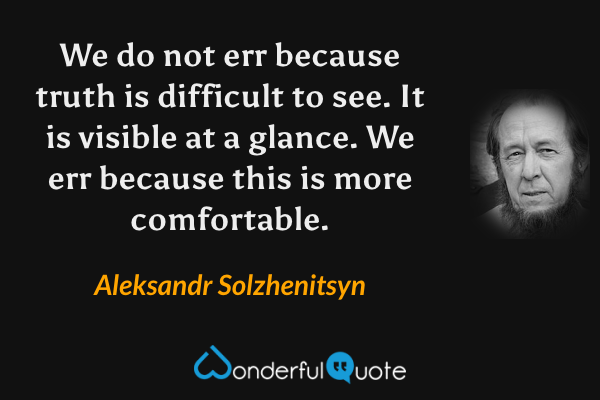
We do not err because truth is difficult to see. It is visible at a glance. We err because this is more comfortable.
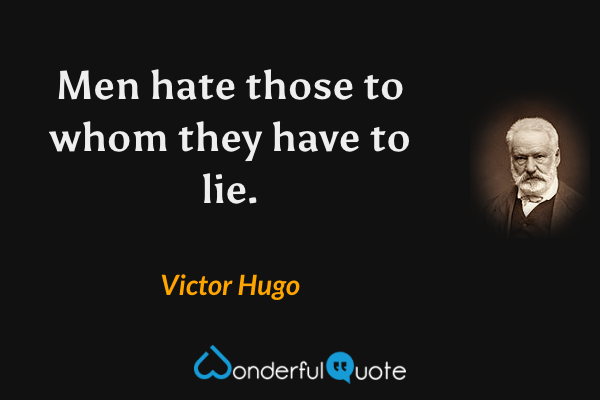
Men hate those to whom they have to lie.
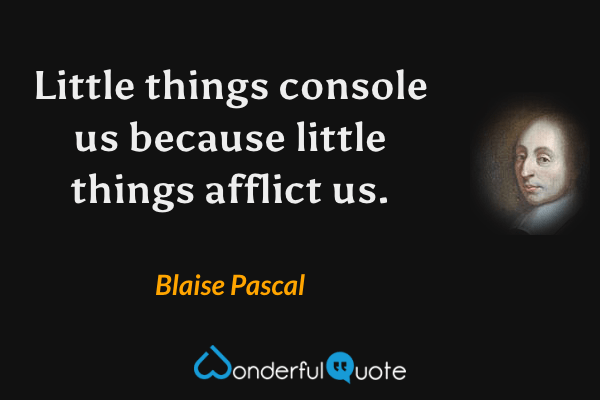
Little things console us because little things afflict us.
It is an all-too-human frailty to suppose that a favorable wind will blow forever.
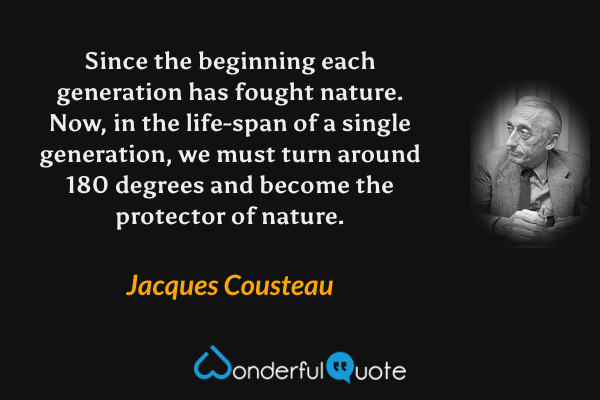
Since the beginning each generation has fought nature. Now, in the life-span of a single generation, we must turn around 180 degrees and become the protector of nature.
Money changes people just as often as it changes hands.
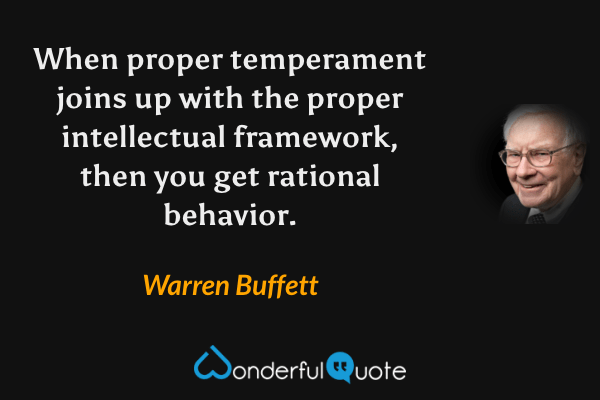
When proper temperament joins up with the proper intellectual framework, then you get rational behavior.
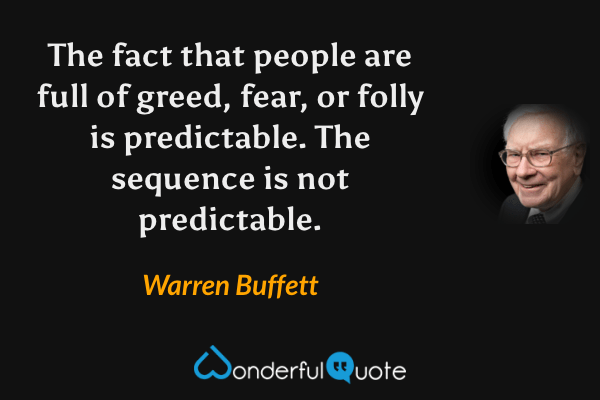
The fact that people are full of greed, fear, or folly is predictable. The sequence is not predictable.

Man is least himself when he talks in his own person. Give him a mask, and he will tell you the truth.

The easiest thing to confess is my neighbor's sin.
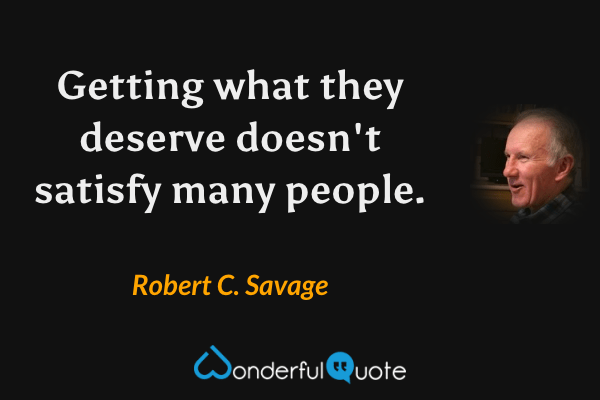
Getting what they deserve doesn't satisfy many people.
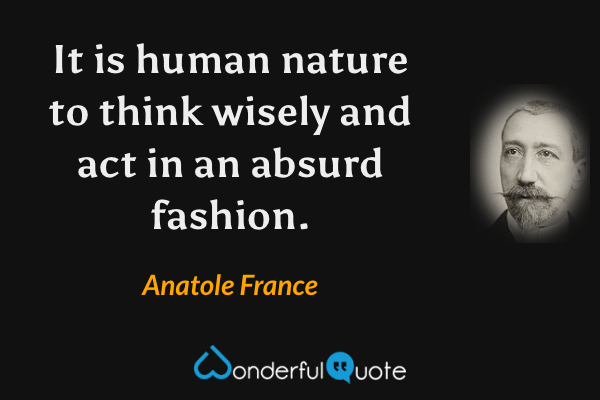
It is human nature to think wisely and act in an absurd fashion.
Even the best of us are at least part-time bastards.

That which the sober man keeps in his breast, the drunken man lets out at the lips. Astute people, when they want to ascertain a man's true character, make him drunk.
If you hate a person, you hate something in him that is part of yourself. What isn't part of ourselves doesn't disturb us.
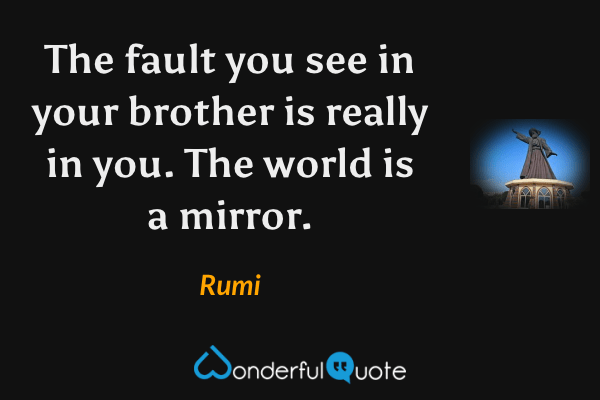
The fault you see in your brother is really in you. The world is a mirror.
Whenever you have trouble with all [group name here], it isn't about [group name here], it's about you. I've found this to be a useful self-diagnostic tool.
The man who is brutally honest enjoys the brutality as much as the honesty. Possibly more.
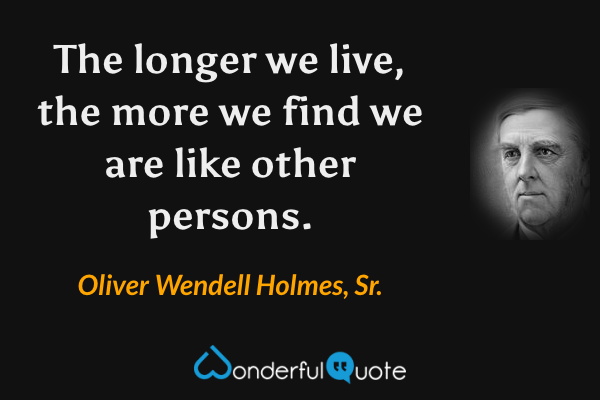
The longer we live, the more we find we are like other persons.
No man is content with his fortune, nor discontent with his intellect.
The absent are never without fault, nor the present without excuse.
Man's chief enemy is his own unruly nature and the dark forces put up within him.
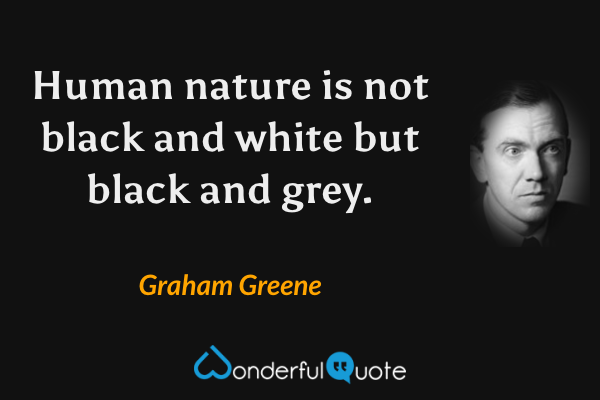
Human nature is not black and white but black and grey.
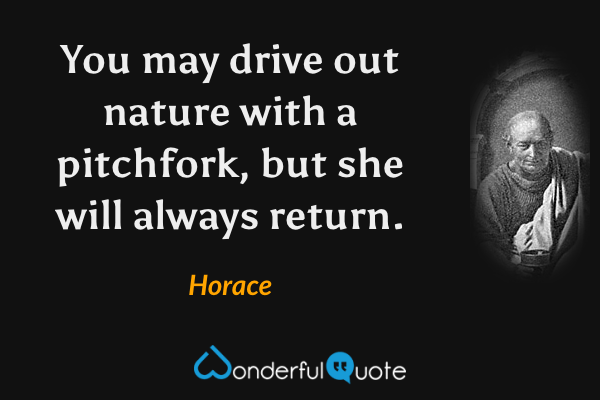
You may drive out nature with a pitchfork, but she will always return.
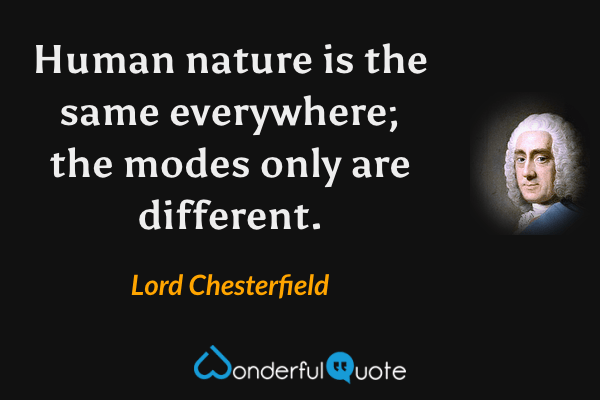
Human nature is the same everywhere; the modes only are different.

When the only tool you have is a hammer, it is tempting to treat everything as if it were a nail.
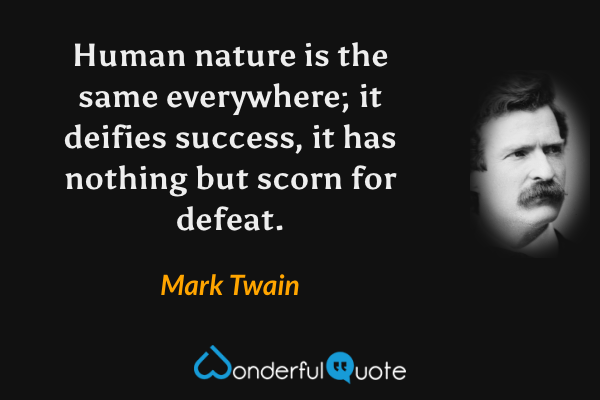
Human nature is the same everywhere; it deifies success, it has nothing but scorn for defeat.
The average person thinks he isn't.
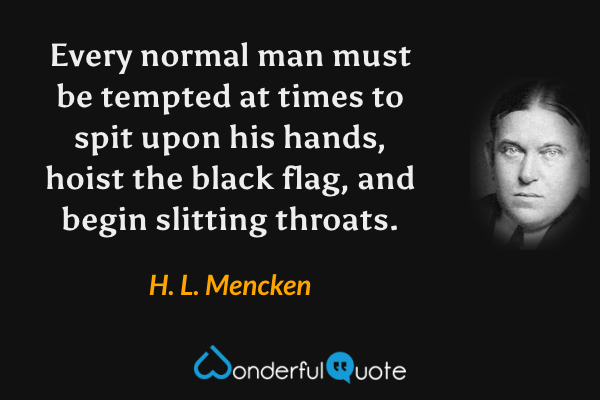
Every normal man must be tempted at times to spit upon his hands, hoist the black flag, and begin slitting throats.
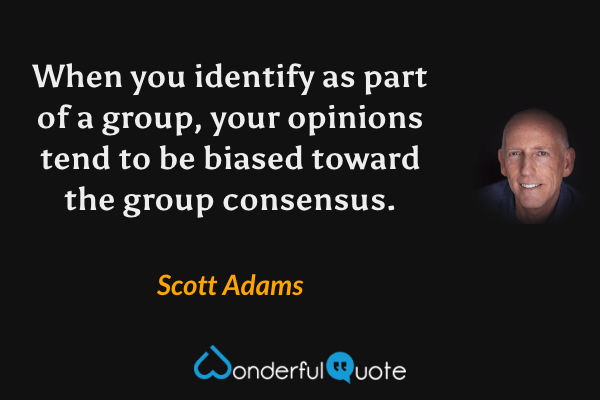
When you identify as part of a group, your opinions tend to be biased toward the group consensus.
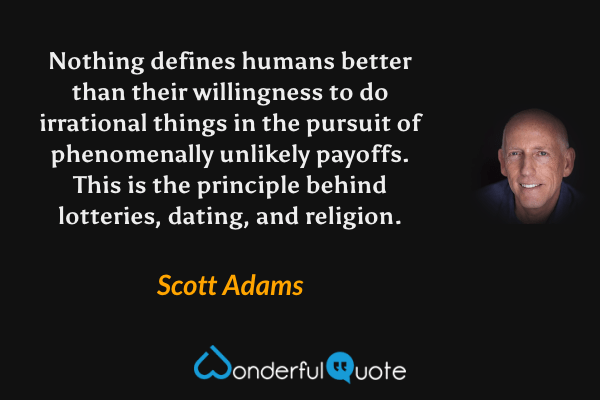
Nothing defines humans better than their willingness to do irrational things in the pursuit of phenomenally unlikely payoffs. This is the principle behind lotteries, dating, and religion.
Till now man has been up against Nature; from now on he will be up against his own nature.
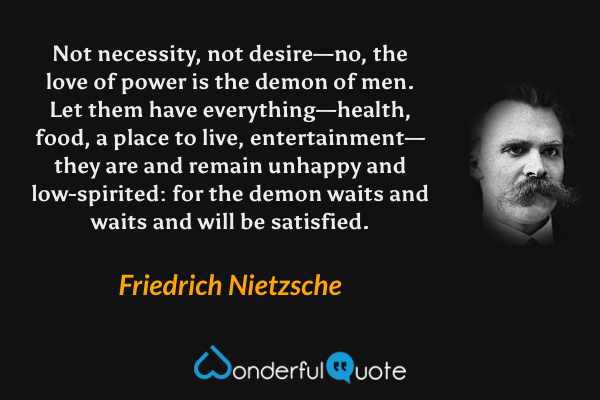
Not necessity, not desire—no, the love of power is the demon of men. Let them have everything—health, food, a place to live, entertainment—they are and remain unhappy and low-spirited: for the demon waits and waits and will be satisfied.

Human behaviour flows from three main sources: desire, emotion, and knowledge.
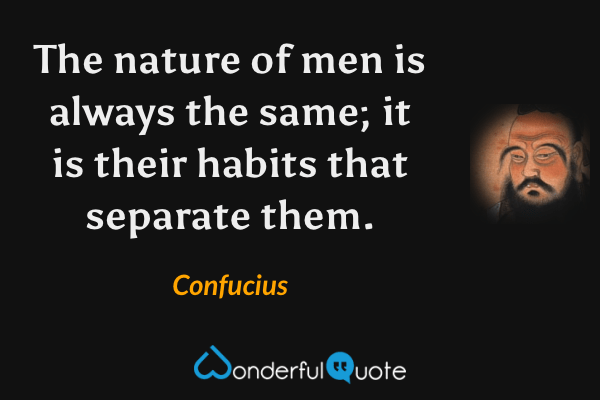
The nature of men is always the same; it is their habits that separate them.

Our chief defect is that we are more given to talking about things than to doing them.
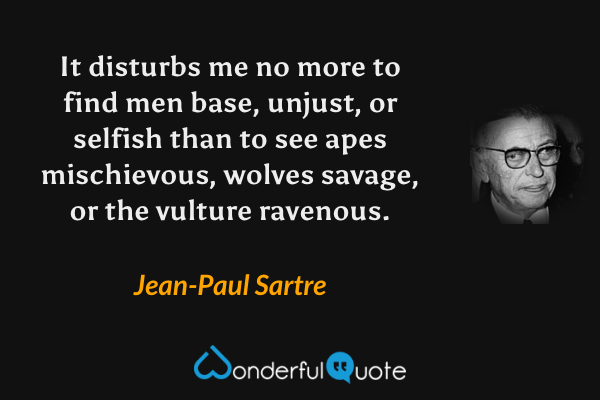
It disturbs me no more to find men base, unjust, or selfish than to see apes mischievous, wolves savage, or the vulture ravenous.
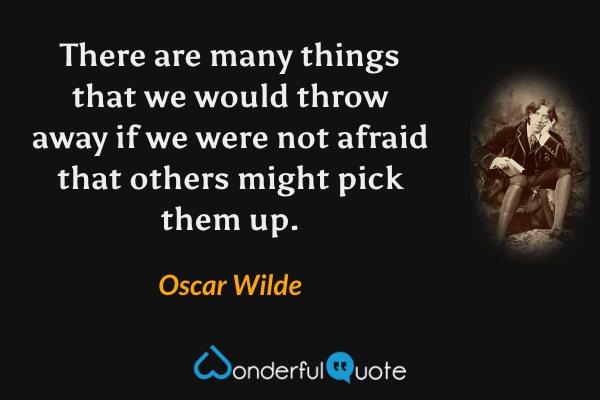
There are many things that we would throw away if we were not afraid that others might pick them up.
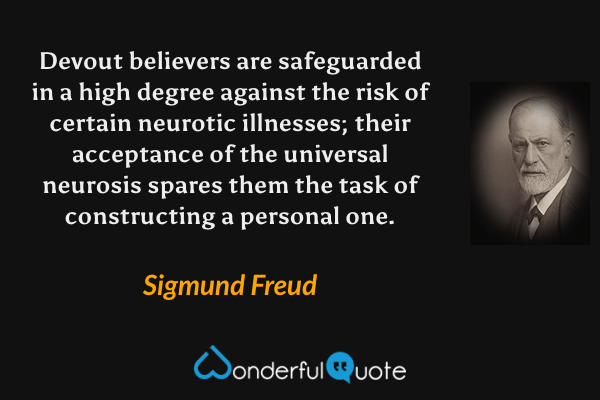
Devout believers are safeguarded in a high degree against the risk of certain neurotic illnesses; their acceptance of the universal neurosis spares them the task of constructing a personal one.
It's not enough that I should succeed—others should fail.
It's our nature: Human beings like success but they hate successful people.
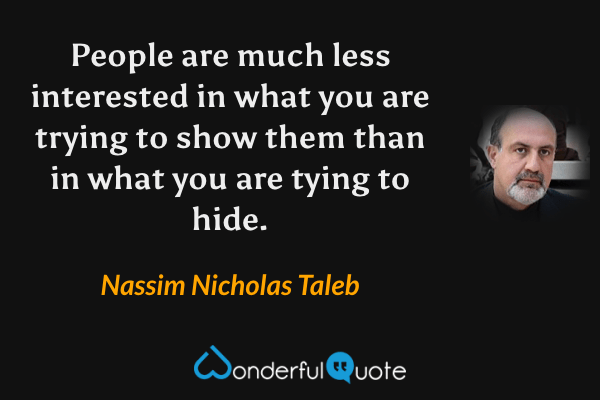
People are much less interested in what you are trying to show them than in what you are tying to hide.
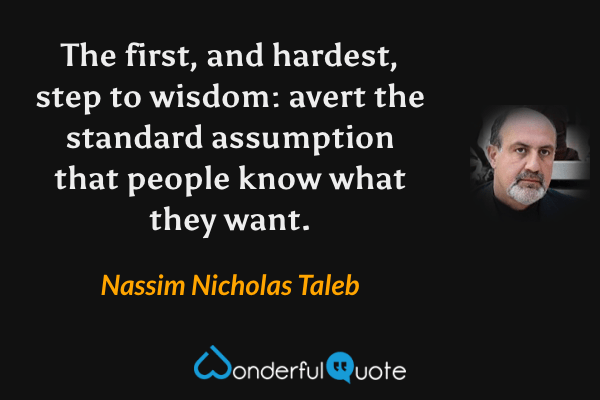
The first, and hardest, step to wisdom: avert the standard assumption that people know what they want.

When people call you intelligent it is almost always because they agree with you. Otherwise they just call you arrogant.
The ferocity with which a dog defends its bone tells us a great deal more about the nature of the dog than the quality of the bone.
Those who despise people are the most desperate to be favorably recognized by them.
Every man, no matter how intelligent and learned, conceals within a dunce in a dungeon and a madman on a chain.
The best way to know people is to find out what they lie about.
Humans have always lived under the illusion that they can control markets, modify human nature, and get their spouses to change.
Everyone feels shame when perceived to be unethical. Even crooks think they are ethical somewhere and in some circumstances.


